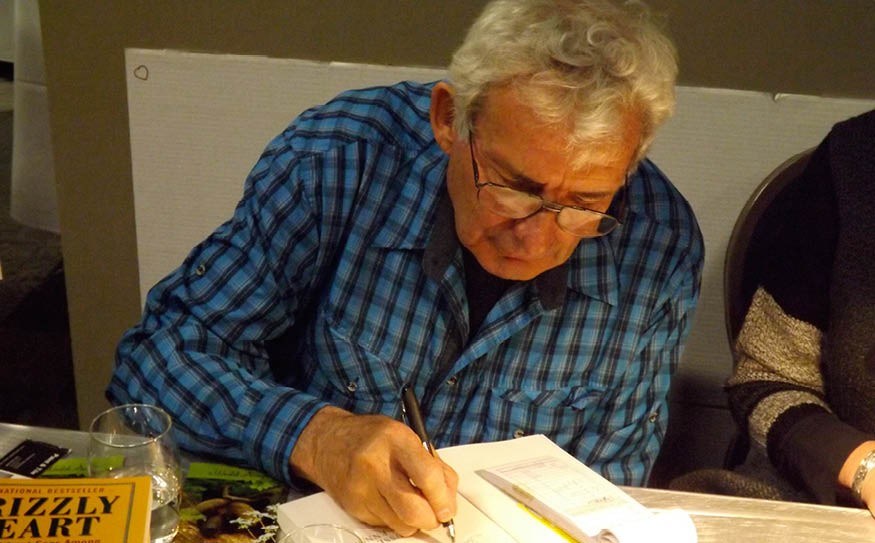A man who has spent more than 40 years researching bears has one simple message for Whistler: bears shouldn't have access to human food and garbage.
Charlie Russell was the headliner at World Ski and Snowboard Festival's Mountain Multiplicity Show. He has been studying bruin behaviours for 40 years, including more than a decade of research surrounded by 400 bears in a remote eastern Russian wilderness area called Kamchatka.
"What I went out to understand was whether bears are capable of living with us, whether we could trust them because there were these ideas that they were unpredictable, that they were inherently dangerous if they would loose fear," said Russell of his research in Kamchatka.
During his presentation at Multiplicity, which took place on Sunday, April 14, he talked about trust and being trustworthy. His foray into the Russian wilderness took him to a place where bears had no previous relationship with humans. According to Russell, mutual trust developed between man and bear as he spent a few months each year living in Kamchatka.
He and his research associates developed mutual trust with the bears to the point where Russell said mother bears would allow him to baby sit their cubs while they wandered off for a little alone time.
The key, according to Russell, is the mutual trust. He said in a place like Whistler where a diverse group of people have gathered, developing trust between humans and bears is difficult.
"As long as they are getting food, getting garbage, getting food from people's houses they're going to go for it," said Russell. "You have to tighten it up. You have to really work the garbage in a way that the bears can't get it and forget about scaring them because it just takes too much effort."
While Russell lived at Kamchatka he put electric fences around his cabin, his outhouse and his floatplane. The bears never touched his plane and as long as the fences were charged the animals stayed out of the small areas in the wilderness that Russell claimed as his own.
"It's really impressive and amazing how trustworthy they are," said Russell.
"The bears can't help but get weird ideas about people when they are around a lot of people," said Russell.
He added that people who are disconnected from nature don't see what's possible when trust develops. He hopes to make a difference by talking about bears and sharing his experiences.




